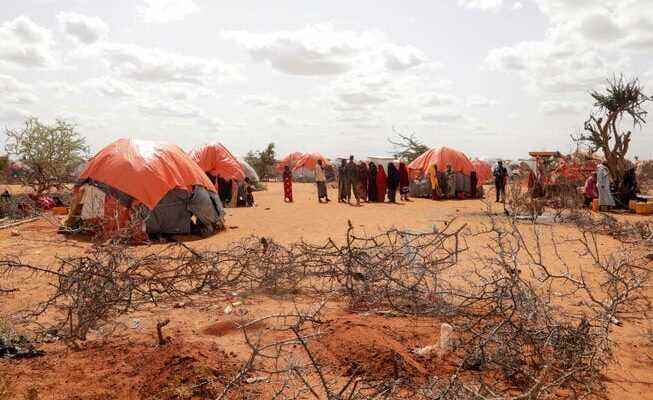A lack of grain deliveries and rising temperatures are preparing the basis for a major famine in Somalia. The UN sounds the alarm – and asks for help.
The graves of two twin sisters in Kaxareey Camp for FILE PHOTO: The graves of twin sisters Ebla and Abdia who died of hunger are seen at the Kaxareey camp for the internally displaced people in Dollow, Gedo region of Somalia May 24, 2022. Picture taken May 24, 2022. REUTERS/Feisal Omar/File Photo
(dpa)
According to the United Nations, Somalia is on the verge of a famine. Etienne Peterschmitt, the representative of the UN agricultural organization FAO, said on Tuesday via video link from Mogadishu to journalists in Geneva that it had not rained enough in the north-east African country for the fourth rainy season in a row. The harvests have practically failed. Depending on the region, it rained 40 to 70 percent less than usual. Food prices have risen drastically and the necessary funds for humanitarian aid have not yet been raised. “Hundreds of thousands of Somalis face starvation and death,” said Peterschmitt.
Around 7.1 million people – about 45 percent of the population – have problems getting enough food for their families. Since mid-April, the number of those most severely affected has risen by 160 percent to 213,000. You are at risk of starvation. Since mid-2021, around three million animals have died due to drought and disease.
The reasons for this lie not only in the climate crisis but also in the Ukraine war. “85 percent of all wheat imports come from Russia and Ukraine. Ukraine accounts for about 50 percent, compared to 35 percent that previously came from Russia,” said the UN coordinator for Somalia, Adam Abdelmoula. In addition, climate change is hitting Somalia particularly hard. “The information we have is that temperatures in Somalia will rise by 3.54 degrees by 2080.” This makes the country practically uninhabitable in summer.
According to the FAO, 1.5 million children are also at risk of acute malnutrition. Internal conflicts made it difficult to care for the people. According to Peterschmitt, 105 million dollars (almost 100 million euros) are urgently needed. The FAO wants to support people in rural areas both with cash to buy groceries and in agriculture. This should improve harvests and help people stay in their villages.
